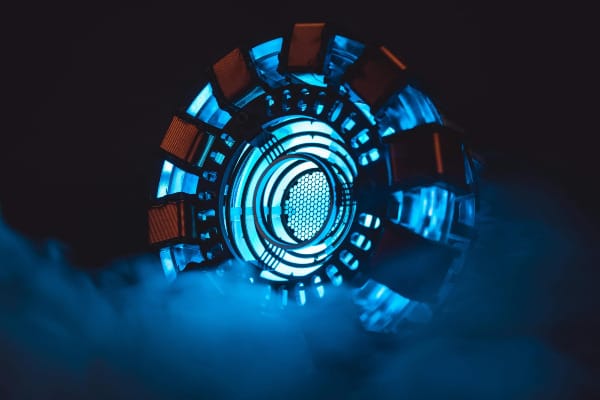Stark Contrast
So here we are, because obviously I don’t know how to not care about this.

I was minding my business, enjoying my much-needed sabbatical: no responsibilities, no kids, just a peaceful day to write—when the internet (and a few well-meaning readers) dragged me straight back into the MCU rabbit hole.
Apparently, some writer thought it was a good idea to have Riri Williams, aka Ironheart, claim that Tony Stark wouldn’t be Iron Man if he hadn’t been rich.
Come on now.
Look, I get teased enough at home for this already, but I will die on this hill: wealth is the least interesting thing about Tony Stark.
And it's because he always learns from his mistakes.
Every failure became an upgrade. When his first suit iced up, he built one that wouldn’t. When Ant-Man got inside his armor (which brought some great dialogue), he built nanotech that sealed itself.
After Whiplash fried his tech, he made one that absorbed electricity. After freezing in Tennessee, he put in heaters. After the fall in Civil War that left Rhodey paralyzed, he put parachutes into Spider-Man's suit.
I could go on and on, but it's obvious that Stark's superpower was relentless self-improvement.
Yes, Tony Stark was born into wealth, but he multiplied that fortune tenfold with his mind. If money created Iron Man, then every other billionaire in the MCU would be saving the world in a suit by now.
But they’re not because what defined Tony was who he became when money couldn’t help him.
In Iron Man, he was kidnapped for his genius, and he used that genius to escape. He built the arc reactor and a functioning prototype suit (say it with me) in a cave...with a box of scraps!
(Thank you, Jeff Bridges, for the gift that keeps on giving.)
In IM2, while dying from palladium poisoning, he created a new element in his living room and cured himself all on his own.
In The Avengers, he became an overnight expert in thermonuclear astrophysics and by Endgame, he'd spitballed time travel in a cabin even though he was conflicted about trying to figure it out.
He had every reason to stay retired, but he still put on that gauntlet, knowing he could never rest until he made things right with the world again.
Tony Stark is Iron Man because even when he’s scared, dying, or out of options, he still finds a way to adapt. He fixes what he can and tries to live with what he can’t.
When Williams says he wouldn’t be Iron Man without money, it’s a cheap shot and a fundamental misunderstanding of what made him and the MCU work.
You wanna talk about mixing magic and tech? Asgardians were doing that before IH was even a footnote. Doom did it better, too, so you're not exactly breaking new ground there.
I know IH isn’t about replacing Stark. In the comics, she had her own arc, but so far, from everything I’ve heard and seen, this version has been a huge miss.
When your character’s main motivation is to be “iconic,” you’ve already lost me.
And, yes, I'm fully aware that RDJ endorsed the series. Of course he did. He’s gracious, smart, and understands the importance of brand continuity.
But a public nod isn't the same as a personal endorsement. And I respect it, but I'm not buying into it.
You can build new legacies without tearing down the ones that came before it.
You don’t have to like him.
But if you want space in the house that Tony Stark built, at least respect who laid your foundation.
If you'd like to support the work, here's where to do it.
If this made sense to you, subscribe. If it didn’t, maybe the next one will.
I am nothing if not versatile.
Related Reads:
- This MCU rant sits next to Movies: Escape or Compass?
- For pop-culture grief, see GenX Is Not Okay Right Now.
- The escape origin story lives in Beautiful Lies.
Heather Papovich is the voice behind Unfinished Business, a weekly essay series where real life meets pop culture, and how to get through both without (mostly) losing it.




